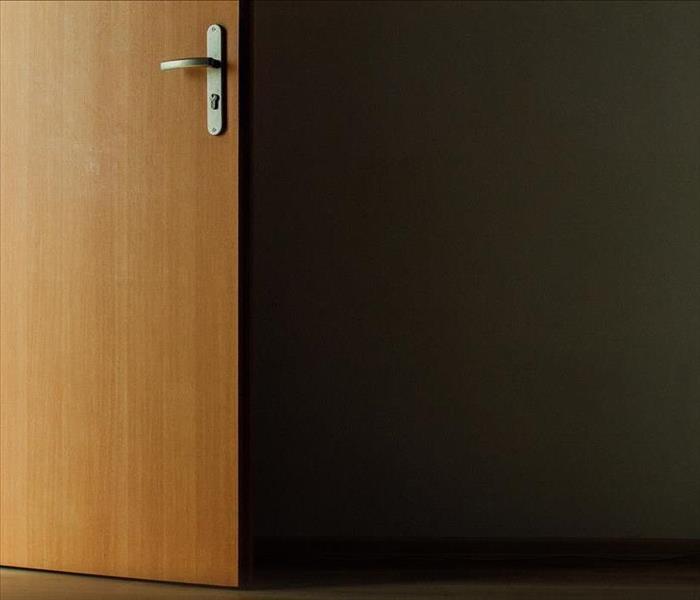What to Do When Walking Through Your Home After a Disaster
3/10/2017 (Permalink)
Walking through your home after a large-scale disaster such as a flood, fire, or storm can be a difficult experience. Unfortunately, if your home was significantly damaged, it can also be dangerous.
General Safety Tips
- Floods can uproot a lot of wildlife. When sorting through debris, make sure to use a stick to move things around. Snakes and other animals might be stuck beneath piles of debris.
- Do not attempt to touch or remove wild animals that may have taken residence in your home during a storm or flood. Do not try to remove any dead animal carcasses, as they can carry diseases. When possible, contact animal control for removal.
- Don’t allow small children to accompany you as you first walk through your home.
- If negative conditions are widespread, use a battery-operated radio to listen for emergency updates and instructions.
- Do not touch any exposed or fallen wiring.
- Never use fire as a source of light until you are certain there are no gas leaks.
For information on how to prepare for and recover from specific disasters, visit the Red Cross Emergency Resource Library.
Before Entering Your Home
If you had to evacuate your home, or if you were simply gone when disaster struck, it’s important to determine if it is safe to enter the building. First, you’ll want to carefully walk around your home while it is still bright outside and look for signs of danger. Do not enter your home if:
- You find fallen or loose powerlines
- Authorities have not declared it safe after a fire (even if you think the fire is out)
- You see or smell any evidence of gas leaks
- There are indications of structural damage in your foundation, stairs, roof, chimney, etc.
- Trees have fallen and damaged structurally important areas of your home
If you find any of these signs of danger, wait for the appropriate authorities to inspect your home first.
Inspecting Your Home
Once you decide it is safe to enter your home to examine the damage, make sure to dress appropriately. Wear heavy, waterproof boots as well as gloves, especially after a flood. Walk through the home carefully. If anything you see, hear, or smell violates the previous signs of danger list, leave immediately.
As you walk through your home, exercise the following cautions to ensure safety:
- If you can reach the fuse box safely, turn off the electricity at the main fuse if you find wet or damaged appliances. Do not attempt to use any electricity until you know it is safe.
- Watch for loose or frayed wiring as well as sparks or other signs of electrical danger.
- Do not walk through any flood water, even if it blocks you from inspecting part of your house. Flood water often contains toxins that can harm you. Additionally, water conducts electricity. If you touch any flood waters that cover outlets, you could get electrocuted.
- Watch for any broken boards, holes in the floor, chemical spills, exposed nails, wet or falling plaster/sheetrock, or compromised foundations.
- If there was a flood, throw away food, water, cosmetics, or medicine that may have been exposed to the flood water. Do not drink water from the tap until a professional has verified its safety. If your home went without electricity for more than 24 hours, do not eat any of your perishable food.
As you walk through your home, you may want to take pictures for your insurance company if it is safe to do so.
If your home was damaged in a storm, fire, flood, or another natural disaster, you may find several safety roadblocks along your road to recovery. Fortunately, we have the necessary knowledge and training to take care of it for you. At SERVPRO® of North Everett/ Lake Stevens/ Monroe, we know how to safely assess the damage, work with insurance companies, and repair your home so it’s “Like it never even happened.”
We offer 24/7 emergency service, so give us a call at 360-243-8313, and we can start making your house feel like a home again.






 24/7 Emergency Service
24/7 Emergency Service
